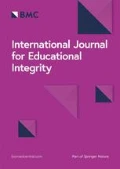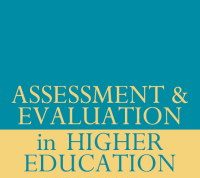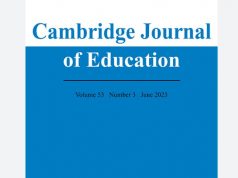By Maria Hvid Stenalt

A key objective when interweaving digital technology into higher education is to facilitate student-centred approaches to teaching and learning. However, there is much evidence suggesting that the official digital tools such as Learning Management Systems are more successful in supporting educational management or structural aspects of learning (flexibility), and less successful in supporting student learning. In recent years, research has confirmed that the integration of digital technology to support student learning requires careful planning and facilitation by the teachers. While rational planning is important, recent studies suggest this may be insufficient to address the key concern related to student engagement in digitally facilitated teaching-learning. These studies point to how meaningful participation is a matter of great importance to student engagement. As student-centred learning interactions in digital learning contexts require student participation and students’ sustained effort to impact student learning, advancing understandings of meaningful participation from a student perspective is, therefore, a critical issue.
The challenge described here is how to understand the micro-processes of learning (such as interactions) from a perspective emphasising that what matters to students. My research focuses on developing more complete explanations of this by viewing students’ participation as social practices, rather than merely concerning cognitive development or pedagogical planning. The approach taken to account for this is to view participant from an agency-structure perspective. The construct of agency is used in various ways in higher education. Among others, it emphasises humans’ capacity to influence their functioning and life circumstances in relation to that which enables or hinders agency (structure). Depending on the theoretical framework applied, studies of agency-structure may emphasise students’ (i) access to power (ii) psychological functioning, or (iii) interpreted individual, interactional and contextual resources to engage meaningfully. While thinking of student agency in higher education is widespread, operationalisations of the construct are however limited.
My current research attempts to find ways to conceptualise teaching-learning interactions that offer descriptions of the intentions of the students, the intentions of others, as perceived by the individual students, and the perceived conditions for learning. An important dimension of the research is the definition and the evaluation of an analytical model for digital teaching-learning interactions, which emphasise the affective qualities related to student agency of specific interactions. Among others, there are opportunities provided by the interaction for investing knowledge and skills, expressing thoughts and feelings, engaging with others, and exposure. The project will investigate sets of signs influencing student participation for each quality. To understand how teaching-learning interactions develop during a course, the project investigates teaching-learning interactions at the beginning and the end of a course.
The insights generated by the research may lead to new understandings of, not only how to conceptualise and evaluate the quality of teaching-learning interactions facilitated by digital technologies, but of how to conceptualise quality in teaching and learning from a student agency perspective.
About me
Maria Hvid Stenalt is a PhD student from Aarhus University in Denmark. She visits Monash University from October to December 2020 to explore and discuss her research with researchers approaching digital education from a critical perspective. With a background as an academic developer involved in strategy implementation and staff development, her research is strongly focused on the implications for teachers and the implications for quality in teaching and learning. Her prior research has focused on faculty development and links between digital technology and strategic aims.







